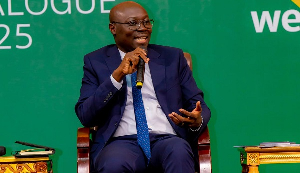“Just so you know I don’t rap no more I say things I see…..”
The multiple award winning rapper spills the above quoted line over the instrumentals professionally put together by Magnom Beatz and MikeMillzOnEm. A feeling of dismay struck me upon hearing him say that he doesn’t rap no more. Really? Well, I had to pause the tune after hearing this line to ponder over it. After some minutes of pondering, I came to the realization that it was delivered in a figurative sense.
I had a conviction that probably the import of this particular line under review was to inform listeners that as a rapper, he’s now more inclined towards rap verses based on realistic issues than the fictional and satirical aspect of rap. Yes, he says; ‘I say things I see’.
It isn’t surprising that in recent times, he’s managed to record a substantial host of tracks which focuses on social issues. He released ‘Inflation’ which focused on the country’s economic situation.
A similar socio-economically based tune titled ‘The Masses was also released about a year ago. The ‘Dumsor’ record summarized the intense power crisis the nation had been facing over the past few years. ‘Hand To Mouth’ dropped to admonish the youth to desist from profligate spending and secure a good future for themselves.
In ‘Take it Back’, Sarkodie assesses the modern rap game in Ghana. He doesn’t sound impressed with the quality of rap being served to the public in recent times as he flows:
‘/Y3nk? back to Reggie Rock/Y3nk? back to Saturday chyper with DJ Black/when rappers wanna
beast on a track/Nowadays s3 beat droppey p3 you see brothers dey slack/. /Y3nk? back to rap/ take it back to Nkas3e the legends from the past/ swag, vim, energy we dey lack/ instrumentals droppey p3 2 minutes p3 then you stop, how?…/
He decides to ‘take it back’ to draw the attention of his fellow rappers and upcoming rappers to how rap was executed in those days, in his quest to urge them to take a cue from the good old days of rap.
He expresses worry over how the quality of rap has fallen these days and therefore wants to trigger an improvement in the standards. He also notices that a section of rap consumers have been undermining the lyrical prowess of his fellow rapper cum friend, Pappy Kojo. Sarkodie mounts a defense in Pappy Kojo’s favour as he goes:
‘/Pappy Kojo no be kolo/ rap no w?to no s3 ‘alikoto’/ s3be follow/ Fante punch no 3hyehye s3 moko…./’.
He employs some interesting similes there to defend Pappy Kojo.
It appears Sarkodie has been on a shout-out spree recently. This represents the unity he stands for in our music industry. In the ‘Fire Bon Dem’ remix released barely a month ago, Sarkodie acknowledged the efforts of his colleague rappers based in Kumasi and also gave them some shout-outs to clear the air on a purported beef he had with them over the years.
Some critics intimated that Sarkodie didn’t give Strongman, a Kumasi based rapper a shout-out when he was delivering shout-outs to Kumasi based rappers in the ‘Fire Bon Dem remix’. Well, in ‘Take it Back’ Strongman as well as his peers get their shout-outs in the following:
‘/Applaud few niggas / T Phlow, Koo Ntakra tomb raiders/ Donzy, Kofi Kinaata the high graders/ Strongman Strong gee the mic burners/….’
As braggadocious as we all know rap is, it is very rare to listen to a hard core rap tune devoid of some bragging elements. Sarkodie once again proves this as he spits these:
‘/Sark the rap king/ mo flow no ay3 fi aa, mebr3 mo napkin/ debiara na mo hw3 me cos am up to something/……’
The production of this tune was executed by Magnom Beatz and MikeMillzOnEm. As a lay person in the field of music production, I wouldn’t elaborate on the technicalities of the production. As far as it sounds very pleasing to the ears, I’ll rate it as an excellent production. The solemn sounds emanating from the keyboard, garnished with the kicks and snares warrants a top-notch rating.
This tune is not a typical commercial song. It is clearly not the type of songs expected to be jamming on the streets. It is rather characteristic of a strictly hip hop tune dominated with rap, obviously a tune which has a defined category of people that can relate to it.
I’ll prefer to end this review with the introduction which also caught my attention. It flowed as follows:
‘I Know you up there,
I can feel you now.
I know that you’re afraid, you’re afraid of us
you’re afraid of change.
I don’t know the future,
I didn’t come here to tell you how this is going to end.
I came here to tell you how it’s going to begin’.
This intro sounds revolutionary, probably a revolution in the rap game. Let’s hope that the desired change that is being echoed here materializes.
Entertainment of Saturday, 16 April 2016
Source: zionfelix.com



![New IGP, COP Christian Tetteh Yohonu [L] and immediate-past IGP, Dr. Akuffo Dampare New IGP, COP Christian Tetteh Yohonu [L] and immediate-past IGP, Dr. Akuffo Dampare](https://cdn.ghanaweb.com/imagelib/pics/140/14041582.295.jpg)









